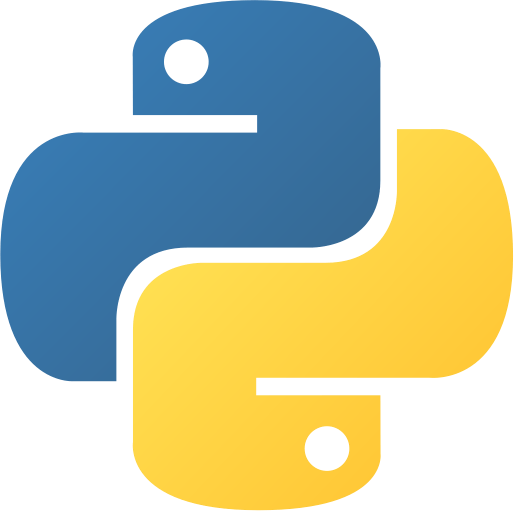Basic Paint Application
Abstract
Build a feature-rich digital painting application with a graphical interface that includes color palettes, brush size controls, eraser tools, canvas background customization, and image saving capabilities. This project demonstrates advanced GUI development, event handling, and image processing.
Prerequisites
- Basic understanding of Python syntax
- Knowledge of Tkinter for GUI development
- Familiarity with event-driven programming
- Understanding of coordinate systems and graphics
- Basic knowledge of image processing concepts
Getting Started
-
Install Required Dependencies
pip install pillow # tkinter comes built-in with Pythonpip install pillow # tkinter comes built-in with Python -
Run the Paint Application
python paint.pypython paint.py -
Start Creating Art
- Select colors from the color palette
- Adjust brush size with the scale control
- Use the eraser tool for corrections
- Save your artwork when finished
Code Explanation
Application Architecture
class Paint:
def __init__(self, root):
self.root = root
self.root.title("Paint")
self.root.geometry("800x520")
self.pen_color = "black"
self.eraser_color = "white"class Paint:
def __init__(self, root):
self.root = root
self.root.title("Paint")
self.root.geometry("800x520")
self.pen_color = "black"
self.eraser_color = "white"Implements a class-based structure for better organization and state management of the painting application.
Event-Driven Drawing
self.root.bind("<B1-Motion>", self.paint)
self.root.bind("<ButtonRelease-1>", self.reset)
def paint(self, event):
x1, y1 = (event.x-2), (event.y-2)
x2, y2 = (event.x+2), (event.y+2)
self.canvas.create_oval(x1, y1, x2, y2, fill=self.pen_color,
outline=self.pen_color, width=self.canvas_width.get())self.root.bind("<B1-Motion>", self.paint)
self.root.bind("<ButtonRelease-1>", self.reset)
def paint(self, event):
x1, y1 = (event.x-2), (event.y-2)
x2, y2 = (event.x+2), (event.y+2)
self.canvas.create_oval(x1, y1, x2, y2, fill=self.pen_color,
outline=self.pen_color, width=self.canvas_width.get())Captures mouse movement and button events to create continuous drawing by placing small overlapping ovals.
Dynamic Color Palette
colors = ["#ff0000", "#ff4000", "#ff8000", "#ffbf00", "#ffff00", ...]
i=j=0
for color in colors:
Button(self.color_frame, bg=color, bd=2, relief=RIDGE, width=3,
command=lambda col=color:self.select_color(col)).grid(row=i, column=j)colors = ["#ff0000", "#ff4000", "#ff8000", "#ffbf00", "#ffff00", ...]
i=j=0
for color in colors:
Button(self.color_frame, bg=color, bd=2, relief=RIDGE, width=3,
command=lambda col=color:self.select_color(col)).grid(row=i, column=j)Creates a comprehensive color palette with buttons arranged in a grid layout for easy color selection.
Brush Size Control
self.canvas_width = Scale(self.root, from_=1, to=100, orient=VERTICAL)
self.canvas_width.set(1)self.canvas_width = Scale(self.root, from_=1, to=100, orient=VERTICAL)
self.canvas_width.set(1)Provides a vertical scale widget for real-time brush size adjustment from 1 to 100 pixels.
Canvas Background Customization
def canvas_color(self):
color = colorchooser.askcolor(title="Select Color")
self.canvas.configure(background=color[1])
self.eraser_color = color[1]def canvas_color(self):
color = colorchooser.askcolor(title="Select Color")
self.canvas.configure(background=color[1])
self.eraser_color = color[1]Allows users to change the canvas background color and automatically updates the eraser color to match.
Image Saving with Screen Capture
def save_paint(self):
filename = filedialog.asksaveasfilename(defaultextension=".jpg")
x = self.root.winfo_rootx() + self.canvas.winfo_x()
y = self.root.winfo_rooty() + self.canvas.winfo_y()
x1 = x + self.canvas.winfo_width()
y1 = y + self.canvas.winfo_height()
PIL.ImageGrab.grab().crop((x,y,x1,y1)).save(filename)def save_paint(self):
filename = filedialog.asksaveasfilename(defaultextension=".jpg")
x = self.root.winfo_rootx() + self.canvas.winfo_x()
y = self.root.winfo_rooty() + self.canvas.winfo_y()
x1 = x + self.canvas.winfo_width()
y1 = y + self.canvas.winfo_height()
PIL.ImageGrab.grab().crop((x,y,x1,y1)).save(filename)Implements screen capture technology to save the canvas content as an image file.
Features
- Comprehensive Color Palette: 27 predefined colors in an organized grid
- Variable Brush Size: Adjustable brush width from 1 to 100 pixels
- Eraser Tool: Switch between drawing and erasing modes
- Canvas Customization: Change background color with color picker
- Clear Function: Reset the entire canvas instantly
- Image Saving: Save artwork as JPEG files
- Responsive Drawing: Smooth, continuous brush strokes
- Professional Layout: Organized toolbar and spacious canvas area
Next Steps
Enhancements
- Add different brush shapes (square, triangle, spray)
- Implement undo/redo functionality
- Create layers support for complex artwork
- Add text tool for adding labels
- Implement zoom in/out functionality
- Add image loading capabilities
- Create brush opacity controls
- Add selection tools (rectangle, lasso)
Learning Extensions
- Study advanced image processing with PIL/Pillow
- Explore vector graphics programming
- Learn about graphics algorithms and optimization
- Practice with custom widget development
- Understand color theory and digital art concepts
- Explore tablet/stylus input integration
Educational Value
This project teaches:
- Advanced GUI Development: Creating complex interfaces with multiple widget types
- Event Handling: Managing mouse events for interactive drawing
- Image Processing: Working with PIL for screen capture and image manipulation
- Coordinate Systems: Understanding pixel-based positioning and drawing
- State Management: Maintaining application state across user interactions
- File Operations: Implementing save/load functionality with file dialogs
- Color Theory: Working with color systems and user color selection
- Object-Oriented Design: Structuring applications using classes and methods
Perfect for understanding graphics programming, user interface design, and image processing concepts in Python.
Was this page helpful?
Let us know how we did
